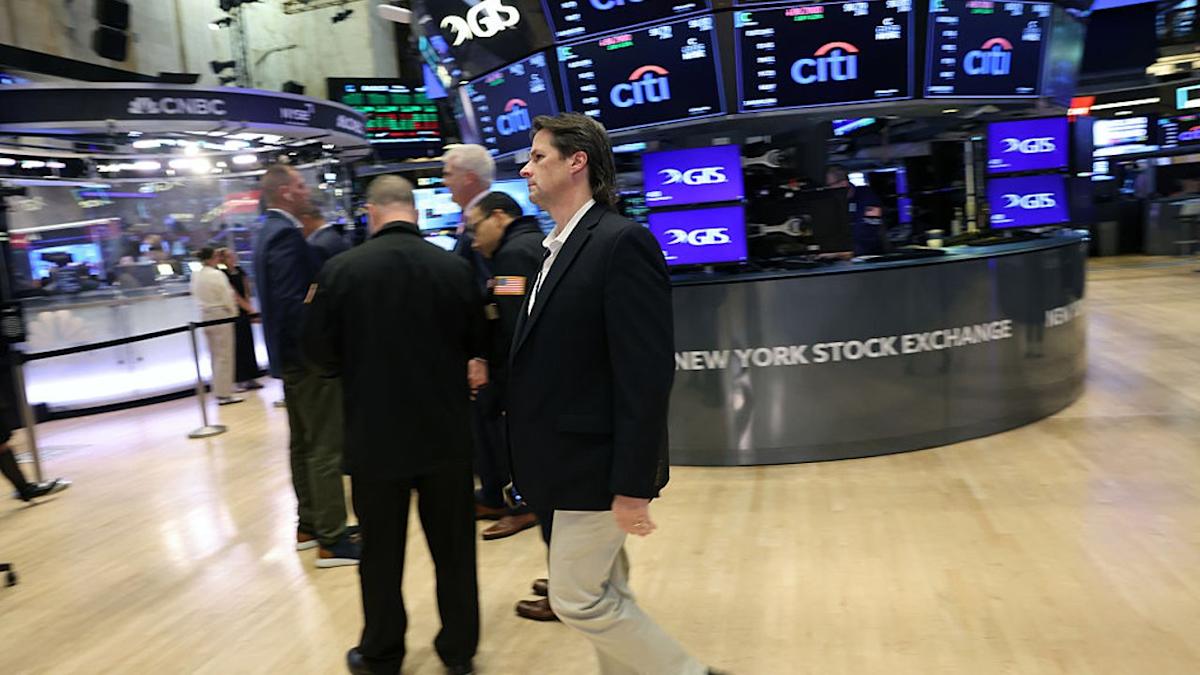The stock market is going 24 hours, 7 days a week
A version of this article originally appeared in Quartz’s members-only Weekend Brief newsletter. Quartz members get access to exclusive newsletters and more. Sign up here.
The stock market’s genteel 9:30-to-4 workday, complete with opening and closing bells that date back to the 1870s, is becoming as anachronistic as the headsets still worn on the New York Stock Exchange floor. Now Wall Street is racing to embrace the always-on ethos of cryptocurrency and prediction markets, and meet the demands of a new generation of retail traders hooked on round-the-clock action.
Major U.S. exchanges, including the NYSE and Nasdaq, are pushing to extend trading to 22 and 24 hours, respectively, with some platforms hoping to launch before year’s end. The shift — driven by surging retail investor participation that now accounts for at least 20% of daily U.S. trading volume and a global appetite for the trillions of American equities — represents the most fundamental change to market structure since electronic trading replaced the trading floor.
But the move toward 24/7 markets, already embraced by brokerages like Robinhood and Charles Schwab through “dark pools” and alternative trading systems, raises critical questions about price volatility, market manipulation, and whether turning stock trading into an endless casino will benefit everyday investors — or simply give them more opportunities to lose money.
The push for perpetual trading reflects a fundamental shift in how Americans interact with financial markets. Everything is becoming a betting opportunity. Polymarket turned the presidential election into a billion-dollar wagering pool where traders could bet on electoral outcomes in real-time. People are now perpetually online, scanning X, deep in their favorite subreddits, treating every news cycle, every earnings report, every geopolitical tremor as a chance to strike it rich.
This is exactly the behavior Wall Street is now addicted to. Blue Ocean Technologies, which powers overnight trading for several brokerages, facilitated $3.3 billion in trades during the overnight session following Election Day last November, more than triple its typical $1 billion overnight volume, according to The Wall Street Journal. Robinhood’s sixth-busiest overnight session ever came after Nvidia’s recent earnings report. These aren’t professional traders executing complex strategies. They’re people in their pajamas making supersize bets based on breaking news, memes, and gut feelings.
The traditional trading day already seems quaint when you consider that cryptocurrency trades 24/7, foreign exchange never sleeps, and American Treasury bonds trade around the clock. Polymarket and other prediction platforms have shown there’s an insatiable appetite for turning every event into a financial position. Why shouldn’t you be able to bet on Tesla’s stock price at 3 a.m. the same way you can bet on whether Trump will post on social media before noon?



Leave a Comment
Your email address will not be published. Required fields are marked *